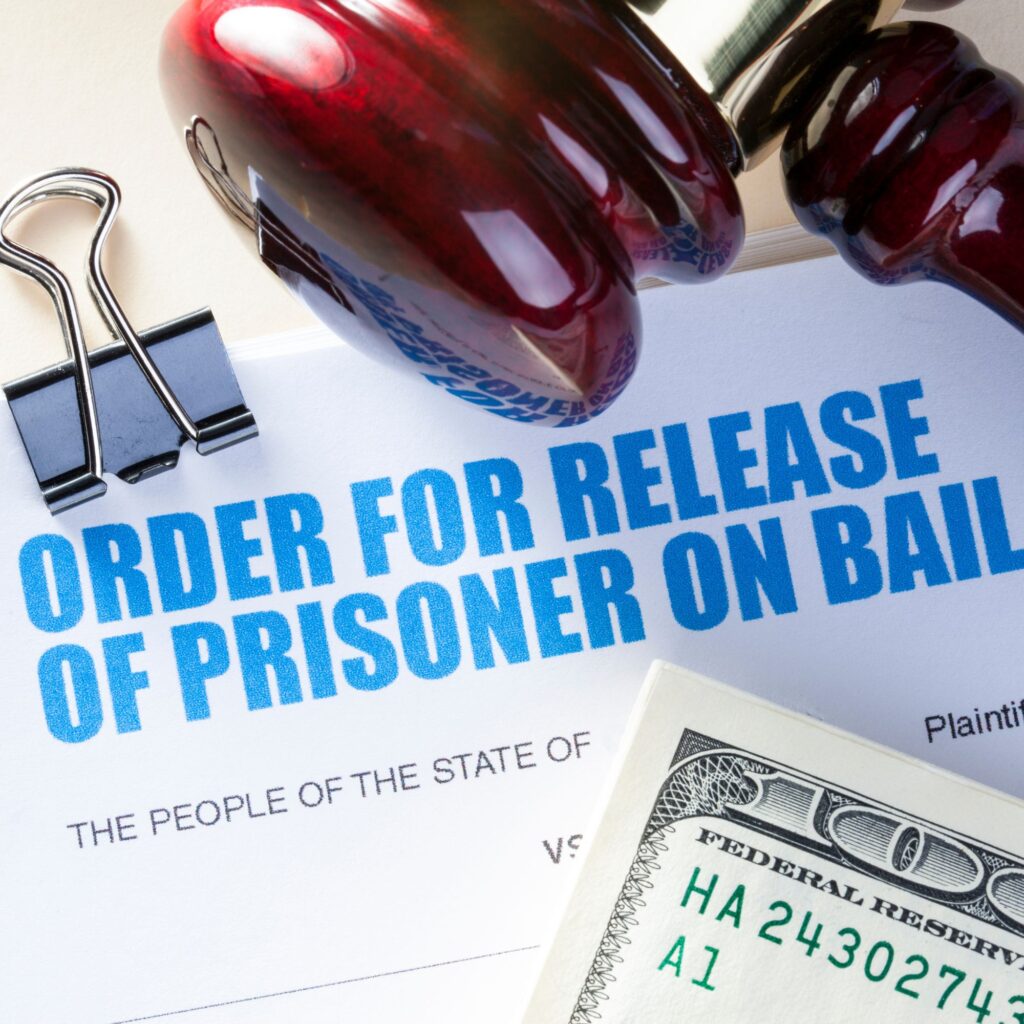Understanding Bail Bonds: Safeguard Freedom Promptly and Quickly
The principle of bail bonds is necessary for individuals looking for to restore their liberty quickly in times of lawful difficulty. By recognizing how bail bonds function, one can value the economic systems that underpin this procedure, consisting of the function of bondsman and the implications of non-refundable costs. Nevertheless, navigating this facility landscape can be difficult, especially when taking into consideration the numerous options offered. What elements should one think about when selecting a trustworthy bail bond solution, and exactly how can these options impact the overall experience? Discovering these concerns provides a more clear insight right into the ins and outs of safeguarding flexibility efficiently.
What Are Bail Bonds?
In the world of the criminal justice system, bail bonds work as an important system for safeguarding a defendant's release from custody while they await test. A bail bond is essentially a contractual contract in between a bail bondsman, the defendant, and the court, making sure that the offender will stand for all arranged court procedures. This economic setup enables accuseds, that may not have the full bail amount at their disposal, to acquire momentary flexibility and keep their day-to-days live.
The bail bond generally includes a cost, generally a percent of the complete bond quantity, paid to the bail bondsman as settlement for the threat sustained. This cost is non-refundable, despite the trial's result. By supplying this solution, bail bond business play a crucial function in the judicial process, supplying not just monetary support but likewise sustain to defendants navigating the intricacies of the lawful system.
Using bail bonds emphasizes the principle of assumption of virtue, permitting individuals to remain complimentary while waiting for a resolution to their instance. This technique assists ease congestion in prisons and preserves the defendant's ability to plan for their defense properly.
Just How Bail Bonds Work
Recognizing just how bail bonds work is key to comprehending their role in the justice system. A bail bond offers as a monetary guarantee that an offender will appear in court as called for. When an individual is arrested and bond is established, they have the choice to pay the sum total directly to the court or look for aid from a bail bondsman.
If a bail bondsman is chosen, the accused typically pays a non-refundable cost, usually around 10% of the bail quantity. In return, the bail bondsman gives a surety bond to the court, permitting the defendant to be released from custodianship. This setup efficiently moves the risk of the defendant not appearing in court from the court to the bondsman.

Advantages of Making Use Of a Bail Bondsman
Utilizing a bail bondsman uses numerous substantial benefits for accuseds navigating the legal system. First and leading, a bail bondsman provides instant financial support, enabling accuseds to secure their release from safekeeping without having to pay the complete bond quantity upfront. This is especially useful for people that may not have the required funds readily offered.
Furthermore, bail bondsmen have substantial understanding of the legal procedure, which can be indispensable in ensuring a smooth release. They comprehend the ins and outs of neighborhood legislations and procedures, aiding defendants prevent possible pitfalls. A reputable bail bondsman can lead offenders via the intricate lawful landscape, using recommendations and support throughout a difficult time.
One more advantage is the flexibility that bondsman offer. They typically use layaway plan, making it much easier for accuseds to handle their funds while awaiting trial. This monetary alleviation can decrease stress and anxiety, enabling people to concentrate on their lawful defense instead than their immediate monetary worries.
Finally, having a bail bondsman can expedite the release process, allowing offenders to go back to their lives and duties while awaiting their court date - Bail Bonds near me. In general, a bail bondsman works as a crucial ally in the trip via the legal system
Selecting a Reputable Bail Bond Service
Picking a reliable bail bond service is crucial for people seeking prompt and effective launch from wardship. To guarantee you choose a reliable service, start by investigating neighborhood bail bond companies.
Verify that the firm is certified and insured, as this suggests conformity with state policies. A respectable bondsman ought to be knowledgeable regarding the bond process and able to address your inquiries plainly. Transparency is key; ensure they give a detailed description of costs, terms, and problems connected with the bond.

Regularly Asked Inquiries Regarding Bail Bonds
Bail bonds can be a complex facet of the legal system, usually leaving individuals with many inquiries during a difficult time. One usual questions focuses on the significance of a bail bond. Basically, it is an economic guarantee that enables an apprehended person to be launched from guardianship while waiting for trial, with the bond working as collateral to ensure their look in court.
One more regular concern concern the price of bail bonds. Generally, a bail bond service fee a non-refundable fee, advice generally around 10-15% of the complete bond amount. This charge is set by state guidelines and is not returned, despite the trial's end result.

Last but not least, many inquire about what occurs if the offender stops working to show up in court. In such situations, the bail bond solution is in charge of settling the complete bond quantity, which might cause the company going after the defendant for recovery. Recognizing these facets can dramatically reduce the bond process throughout a difficult circumstance.
Conclusion
In recap, understanding bail bonds is necessary for people facing legal obstacles. By navigating the complexities of the legal system successfully, bail bonds add to the assumption of that site virtue and support individuals in managing their circumstances during the pre-trial period.